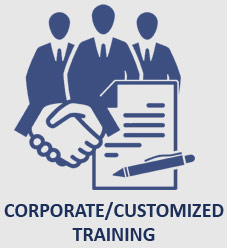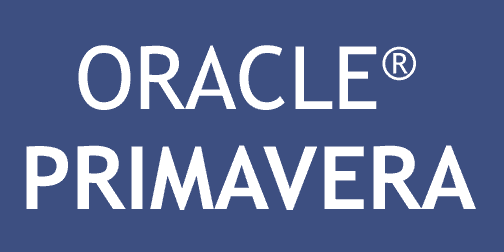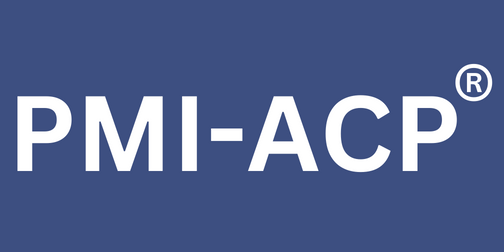
The Complete Guide to Project Management
Posted On May 24, 2024 - 16:32 PM
Overview of Project Management
Project management is vital in today's fast-paced and complex business world. Whether you are a seasoned professional or just starting in your career, understanding project management principles can help you effectively plan, execute, and deliver successful projects. This comprehensive guide is designed for beginners looking to demystify the world of project management. From defining project scope to managing stakeholders and resources, this blog will cover all the essential aspects of project management to help you navigate your projects confidently and successfully.
Project Management Types
Project management encompasses various methodologies suited to different project types. Here's a glimpse into some popular approaches:
-
Waterfall: A sequential approach where each project phase (initiation, planning, execution, monitoring, closure) is completed before moving to the next. Ideal for well-defined projects with minimal ambiguity.
-
Agile: An iterative and incremental approach where requirements are continuously refined and adapted based on feedback. Commonly used in software development due to its flexibility and responsiveness to change.
-
Lean: Focuses on minimizing waste and maximizing value throughout the project lifecycle. Often utilized in manufacturing to streamline processes and improve efficiency.
Multilevel Success Framework and Criteria
Project success goes beyond merely completing projects on time and within budget. A multilevel framework considers additional factors like:
-
Project performance: Meeting pre-defined goals and objectives.
-
Benefits realization: Evaluating if project benefits align with overall organizational goals.
-
Stakeholder satisfaction: Measuring the level of satisfaction of stakeholders involved in the project.
-
Sustainability: Ensuring the project's impact is sustainable over the long term.
What Does a Project Manager Do?
A project manager's day-to-day activities include:
-
Defining project scope and objectives.
-
Developing a project plan, including schedules, budgets, and resource allocation.
-
Leading and motivating project teams.
-
Communicating effectively with stakeholders.
-
Identifying and mitigating project risks.
-
Monitoring project progress and making necessary adjustments.
-
Managing project documentation and reporting on progress.
-
Overseeing quality control measures.
Importance of Project Management in Business
Efficient project management is crucial in ensuring successful project outcomes within businesses. It provides a structured approach to planning, executing, and monitoring projects, improving productivity and profitability. By adhering to project management principles, companies can effectively manage resources, mitigate risks, and meet project deadlines. Moreover, project management helps align project objectives with overall business goals, fostering a culture of accountability and transparency. Understanding the importance of project management in business is essential for professionals at all levels, as it allows for more excellent project success and business growth. The following section will explore the key benefits of implementing project management practices in your organization.
Fundamental Principles and Processes of Project Management
Understanding fundamental principles and processes is paramount to implementing project management practices effectively. These include defining project scope, setting clear objectives, creating achievable milestones, allocating resources efficiently, establishing communication plans, and monitoring progress throughout the project lifecycle. These principles ensure project clarity, stakeholder alignment, and successful delivery within timelines and budgets. By mastering these fundamental elements of project management, beginners can confidently navigate projects and drive tangible results for their organizations. In the following section, we will break down each principle and process to provide a comprehensive guide for beginners stepping into project management.
Benefits of Project Management
Effective project management brings numerous benefits:
-
Increased project success rates: By utilizing structured approaches, projects are more likely to meet their goals.
-
Improved efficiency and resource utilization: Optimized workflows minimize waste and maximize the utilization of resources.
-
Enhanced communication and collaboration: Project management fosters transparency and cooperation among team members and stakeholders.
-
Reduced risks and proactive mitigation: Proactive identification and management of risks helps prevent project derailment.
-
Improved customer satisfaction: Timely project delivery meeting specified requirements improves customer satisfaction.
Tools and Techniques for Successful Project Management
In the world of project management, having the right tools and techniques at your disposal can make all the difference. From Gantt charts to project management software, there are numerous resources available that can enhance productivity, improve collaboration, and streamline project workflows. It is crucial for beginners to familiarize themselves with these tools and understand how to leverage them effectively to drive project success. In the upcoming section, we will explore some of the essential tools and techniques that can empower beginners to organize tasks, track progress, communicate effectively, and ultimately achieve project objectives with precision and efficiency. Stay tuned for valuable insights on optimizing project management practices through the strategic use of tools and techniques.
Program Management and Project Networks
Program management involves overseeing interrelated projects that contribute to a more extensive program objective. Project networks visually represent project activities, dependencies, and timelines using the Program Evaluation and Review Technique (PERT) and Critical Path Method (CPM).
Common Challenges in Project Management and How to Overcome Them
Despite having access to various tools and techniques, project management inevitably comes with its own challenges. Whether it's scope creep, stakeholder miscommunications, resource constraints, or unforeseen risks, beginners often navigate obstacles that can jeopardize project success. In this section, we will delve into some of the most common challenges project managers face and provide practical strategies to overcome them. By addressing these challenges head-on and implementing proactive measures, beginners can fortify their project management skills and ensure a smoother journey towards achieving project goals. Stay tuned as we unravel valuable insights on overcoming common project management hurdles.
The Role of a Project Manager
The Role of a Project Manager is pivotal in ensuring the successful execution of a project. Project managers play a multifaceted role as the driving force behind project coordination, communication, risk management, and stakeholder engagement. They are responsible for orchestrating the various project components, aligning team members towards a common goal, and adapting strategies to overcome unforeseen obstacles. Effective project managers possess a diverse skill set, including leadership, problem-solving, communication, and time management. In the upcoming section, we will explore the critical responsibilities of a project manager and provide insights into the essential skills and qualities that define a successful project manager. Stay tuned for valuable tips on mastering the art of project management.
Tips for Effective Project Management
Communication is critical to excelling in project management. Schedule regular progress updates, encourage open dialogue, and actively listen to team members' concerns. Set clear objectives and deadlines and ensure all stakeholders are aligned on expectations. Embrace problem-solving with a proactive mindset, seeking solutions rather than dwelling on obstacles. Prioritize time management by creating realistic timelines and adhering to them diligently. Remember, flexibility is essential in adapting to unforeseen challenges. Utilize project management tools to streamline processes and enhance efficiency. Stay tuned for our next blog post, where we will delve deeper into practical strategies for implementing these tips effectively in your projects.
Conclusion and Next Steps
Mastering project management requires a fusion of effective communication, strategic problem-solving, meticulous time management, and adaptability to unexpected twists. By fostering open dialogue, setting clear objectives, and embracing a proactive mindset, you lay a solid foundation for successful project outcomes. Incorporate project management tools to optimize workflow and productivity. In the upcoming post, we will provide hands-on advice on how to apply these principles in real-world projects. Stay committed to honing your project management skills, and watch your projects flourish. Remember, persistence and continuous learning are vital to becoming a proficient project manager. Stay tuned for more insightful tips and strategies on mastering project management.


















